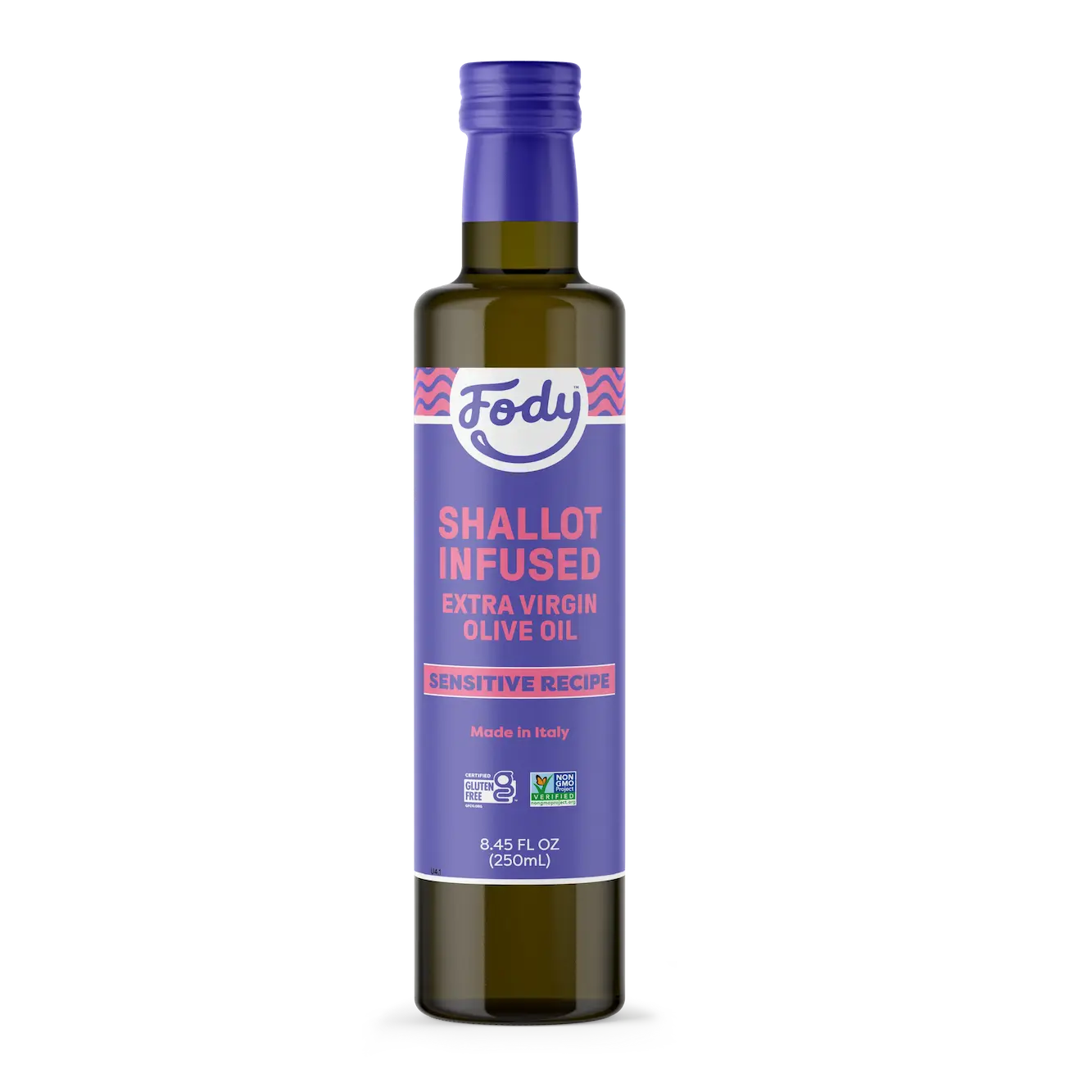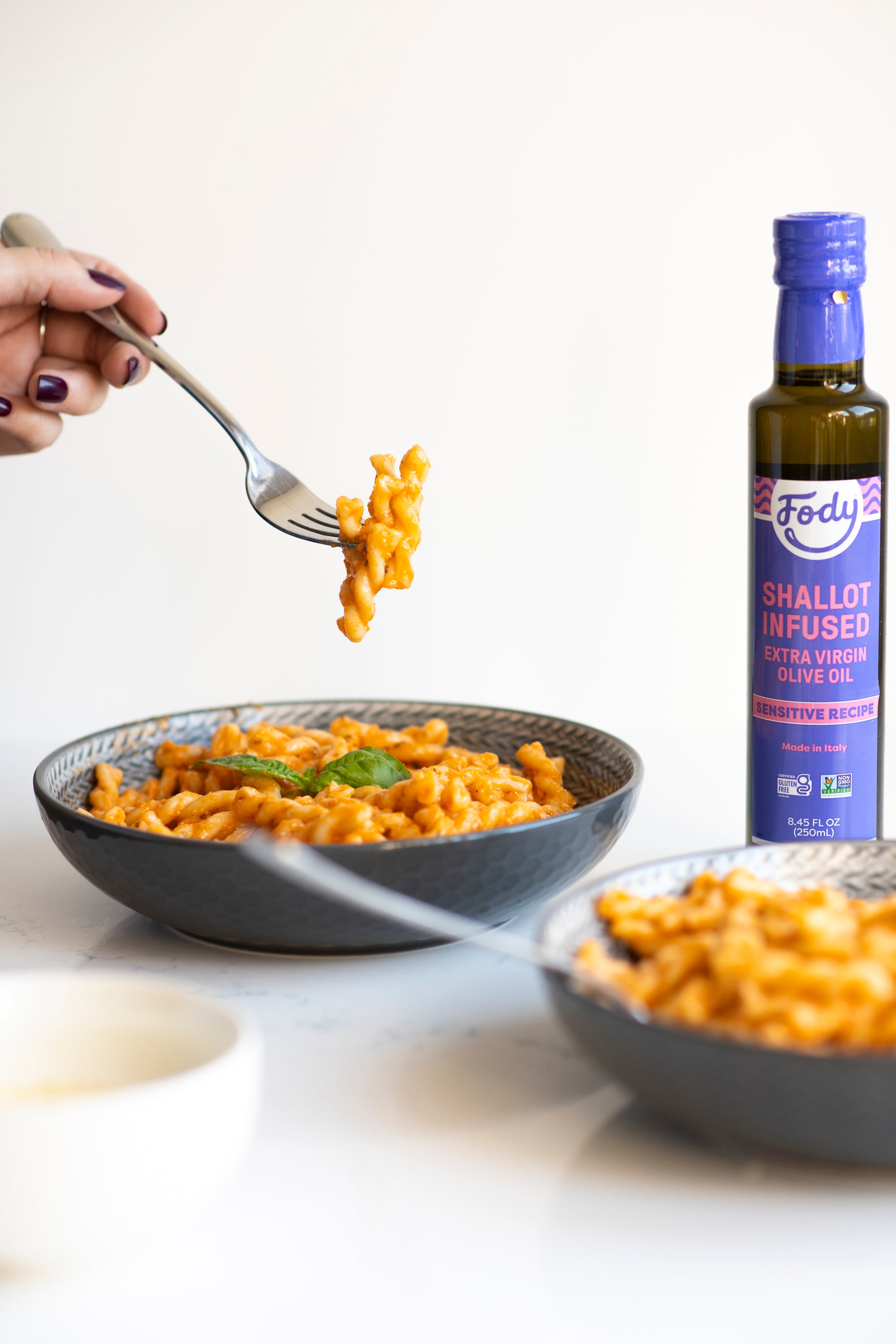

What Can Trigger IBS Symptoms?
*The below is an extract from chapter one of the book The Low FODMAP 6-Week Plan & Cookbook by Suzanne Perazzini.
Various different factors come into play where the triggering of IBS symptoms is concerned. Apart from FODMAPS, let’s look at some of the major triggers.
Carbonated Drinks
The bubbles in carbonated drinks are a gut irritant because they introduce gas into the gut. They also present another problem: their sugar levels. Sweetened carbonated drinks have much more sugar than an IBS sufferer can tolerate. “Diet” drinks are to be avoided, too, even though they sometimes use Low FODMAP sweeteners, such as aspartame. The drawbacks of such artificial sugars—including headaches and digestive issues—have been well documented. The safest carbonated drink is plain soda water, and that should be enjoyed only as an occasional treat because it’ll still introduce gas into the gut.
Large Meals
Large meals can stimulate the hormones involved in the gastrocolic reflex (an increase in colonic motility or movement triggered by eating). This, in turn, triggers colon contractions, which can cause painful gut cramps. Later on in this book, I’ll show you how to eat smaller meals, more often, leaving at least three hours between each.
Skipping Meals
IBS sufferers are often tempted to skip meals, believing that this will reduce symptoms. This isn’t a good idea, though, because the goal is regularity. Help your digestive system learn to operate efficiently by eating five smaller, more frequent meals according to a well-structured routine. There is also the possibility that gas may start to accumulate in the gut once digestion has finished, and more gas is the last thing we need.
Lack of Liquid
Drinking water during meals was once thought to dilute your digestive juices, but this isn’t so.
It’s important to drink six to eight glasses of plain water a day. According to the latest research, you should sip water slowly during your meal: It’ll help the passage of food through the gut. Not drinking enough water will aggravate the symptoms of IBS sufferers with constipation.
Medication
Some drugs can trigger spasms of the colon, and these spasms can lead to constipation or diarrhea.
Some common culprits include the following:
- Antibiotics, especially after prolonged use
- Medicine containing sorbitol, such as cough syrup
- Supplements that contain high-FODMAP non-active ingredients
- Certain antidepressants—especially older antidepressants called tricyclic antidepressants—can cause constipation. Standard antidepressants (called selective serotonin reuptake inhibitors, which include Prozac and Zoloft) can cause diarrhea, at least initially. Your doctor can help you find an antidepressant that won’t aggravate your IBS symptoms.
Menstruation
Studies show that women with IBS tend to experience worse symptoms during their periods. Consult your health practitioner about using certain oral contraceptives and premenstrual dysphoric disorder (PMDD) drugs to ease discomfort. Drugs used to treat depression, such as Sarafem, Paxil CR, and Zoloft, may also help. They adjust the brain’s levels of serotonin, which is a chemical that may be out of balance during segments of a woman’s cycle.
Fiber
Fiber is a gut irritant, but we do need it for “normal” bowel function. Around 1 ounce (28 grams) is the recommended fiber intake for the general population. As an IBS sufferer, you may need less in order to prevent fiber-induced symptoms. The exact amount of fiber you should consume is highly individual, and trial and error is the only way to find out what works for you. It’s a fine balance, but it’s important to experiment in order to get as much fiber into your diet as possible without triggering your symptoms.
The following are good sources of fiber:
- All fruits and vegetables—keeping the skins of fruit and vegetables on increases the amount of fiber even more. Spread your fruit and vegetable intake throughout your five small daily meals so that you’re not eating too much fiber in a single meal.
- Try to eat some Low FODMAP nuts each day.
- All grains—some, such as oats, brown rice, oat or rice bran, and quinoa have more fiber than others.
- Chickpeas and lentils—1/4 cup (42 g) canned chickpeas, drained, and 1/2 cup (99 g) canned lentils, drained.
You can easily get adequate fiber from eating fresh, unprocessed foods. Avoid fiber supplements; they are too fierce and can aggravate your symptoms.
Fat
Fat is a gut irritant due to its ability to increase colonic hypersensitivity. All the cells in our bodies require fat, so we can’t cut it out of our diets completely. You need to eat enough fat to stay healthy and feel well, without triggering your symptoms. It’s a fine line and, as with fiber, the tolerable level will be different for each individual. You have to find out where that line is for you. For instance, a drizzle of olive oil on a small salad might be okay, but perhaps deep-fried chips or French fries won’t be. Also, if you have had your gallbladder removed, then you’ll have to eat a lower-fat diet than most people.
Consuming too little dietary fat can aggravate constipation, so do get as much as possible within your individual limits.
*The above is an extract from chapter one of the book, The Low FODMAP 6-Week Plan & Cookbook by Suzanne Perazzini.
This book takes you step by step through how to do the Low FODMAP diet and includes all those little, as well as big, details that most IBS literature ignores. This is not just about the Low FODMAP diet, as important as it is, but it is about other gut irritants, about how and when to eat and it is also about creating a lifestyle that supports the diet. The book will give you detailed weekly meal plans, diary pages, 100 Low FODMAP recipes and much, much more.
So, what are you waiting for?
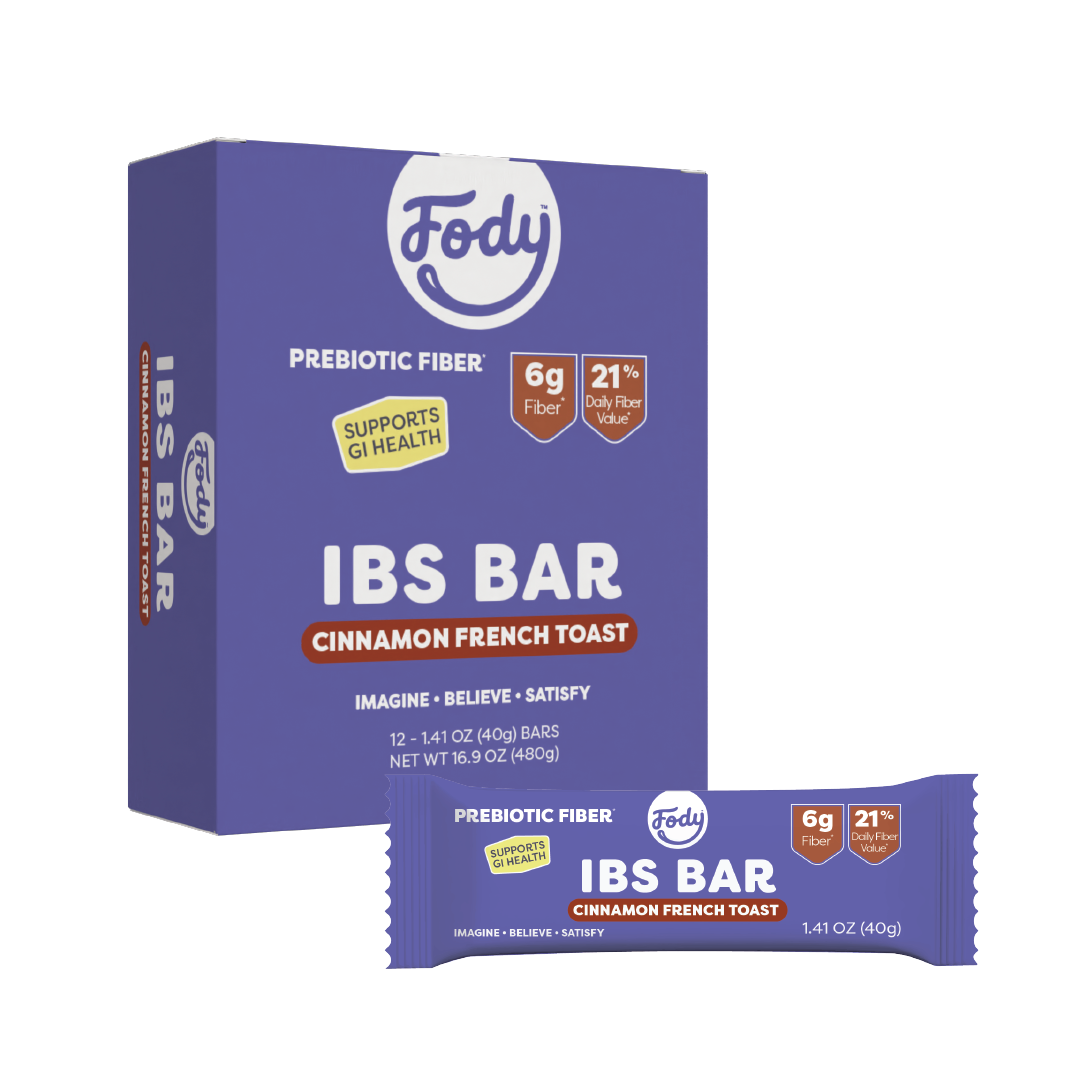
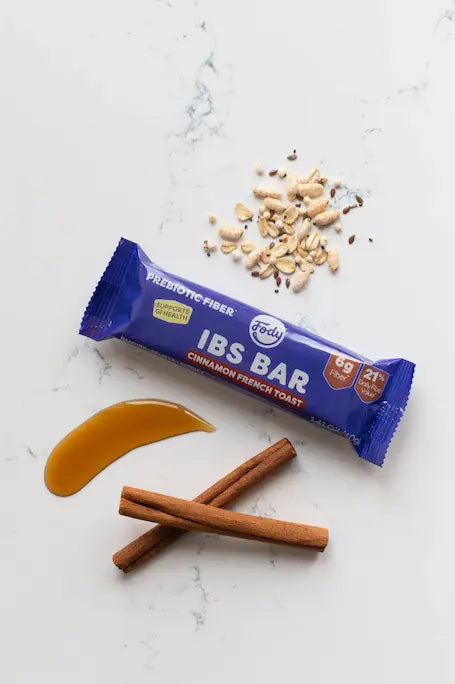 Cinnamon French Toast High Fiber Snack Bar - 12 Pack
Cinnamon French Toast High Fiber Snack Bar - 12 PackCinnamon French Toast High Fiber Snack Bar - 12 Pack
$32.99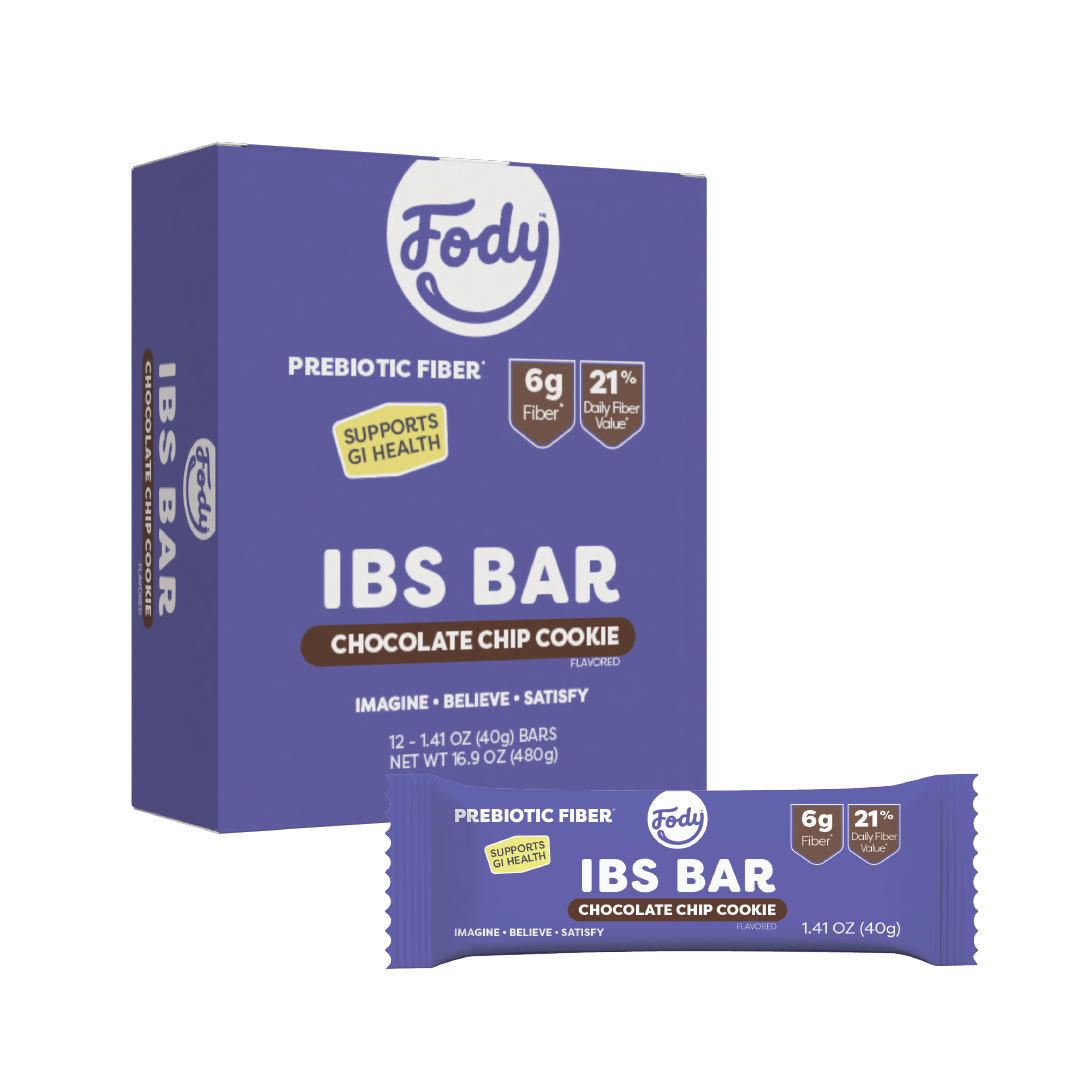
 Chocolate Chip Cookie High Fiber Snack Bar - 12 Pack
Chocolate Chip Cookie High Fiber Snack Bar - 12 PackChocolate Chip Cookie High Fiber Snack Bar - 12 Pack
$32.99











